NYT History Book Reviews: Who Got Noticed this Week?
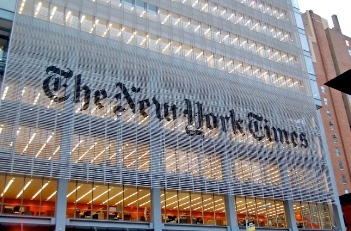
The New York Daily Times debuted on Thursday, Sept. 18, 1851. The inaugural edition, which was sold for a single penny at the time, opened up with "a word about ourselves" which read:
We have now entered upon the task of establishing a new paper in this city, without due consideration of its difficulties as well as its encouragements. We understand perfectly, that great capital, great industry, great patience are indispensable to its success, and that even with all these, failure is not impossible.
We shall seek, in all our discussions and inculcations, to promote the best interests of the society in which we live - to aid the advancement of all beneficient undertakings, and to promote in every way, and to the utmost of our ability, the welfare of our fellow-men.
The NYT has come a long way. In March of this year, the paper started its own Instagram page. It's only a matter of time before the NYT launches its own space station, or at least its own regime of satellites.
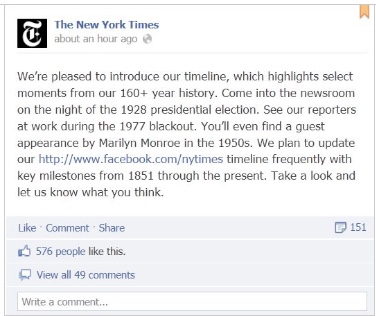
Each week the NYT Book Review receives 750 to 1000 books from authors and publishers in the mail, of which 20 to 30 are chosen for review. A couple of them (thankfully) are history related. This is where HNN comes in, to find out why they were chosen and to keep a scorecard for NYT's readers, or history enthusiasts in general, who may be scoping out the competition, searching for trends in the press, or just looking for a good read.
The Scorecard:

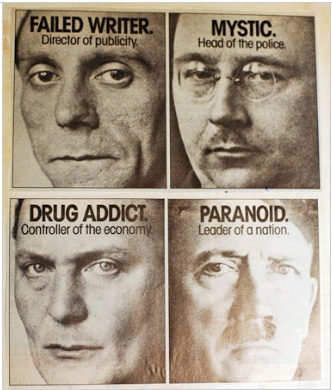
Goebbels: A Biography, by Peter Longerich
The first of this week's batch is a biography of Joseph Goebbels, minister of propaganda for Nazi Germany from 1933-1945. Altogether, 1,200 films were made in Germany from between those years Goebbels was in office. There are still 40 very offensive films that are not allowed to be shown publicly, and clips of them have been gathered together for a new documentary, “Forbidden Fruit: The Hidden Legacy of Nazi Film.”
The author, Peter Longerich, has also written a biography of Heinrich Himmler, Adolf Hitler's top enforcer. Longerich is a German professor of history and is considered one of the leading German authorities on the Holocaust.
Prior to the English version of the biography being released, the book was the subject of controversy. The "heirs" of Goebbels via his estate are trying to make some money off Longerich's biography, which quotes extensively from the minister of propaganda’s diaries. Francois Genoud, a Swiss businessman and Nazi sympathizer who holds the copyright on behalf of the Goebbels family, is asking for a $25,000 payment.
Cordula Schacht, a lawyer whose own father, Hjalmar Schacht, was Hitler’s minister of economics, is suing Random House Germany.
It’s a bizarre situation. How can the words of war criminals garner royalties? Rainer Dresen, general counsel of Random House Germany, told the Guardian that an important principle was at stake. “We are convinced that no money should go to a war criminal,” he said. He recalled his surprise when Schacht first contacted the publisher as a representative of Goebbels’ heirs, demanding money: “I did not want to believe that anyone can claim royalties for Goebbels’ words, he said.
Lawyers in Germany have questioned whether copyright laws can be ignored because of moral objections, according to a BBC report.
Longerich recognizes how important the verdict of this case is for future history projects. “If you accept that a private person controls the rights to Goebbels’ diaries, then – theoretically – you give this person the right to control research,” he said.
“In this case, we are dealing with the daughter of a cabinet colleague of Mr. Goebbels. This is an absolutely unacceptable situation. It’s a question not only of morality, but of professionalism for a historian.”
After the hearing in April, Dresen says things are looking good for Random House. The Munich Higher Regional Court reluctantly accepted the appeal. Now the court needs to determine whether the words of one of the most important war criminals in history can be commercialized or not. A verdict is expected on July 9.
The book: As the Telegraph puts it, "the book examines Goebbels not just as the propaganda genius behind Hitler but as the depraved, sexually obsessed, sentimental and manipulative individual he really was." It also alleges that Goebbels was a narcissist and also details his fanaticism towards his Fuhrer.
The reviewer: James J. Sheehan is an American historian of modern Germany, a former president of the American Historical Association, and a professor of history at Stanford University.
He said:
“Goebbels: A Biography,” in a fluent translation of the German version published in 2010, is likely to remain the definitive account of the man’s life. No other scholar has so successfully mastered the enormous mass of material he left behind."
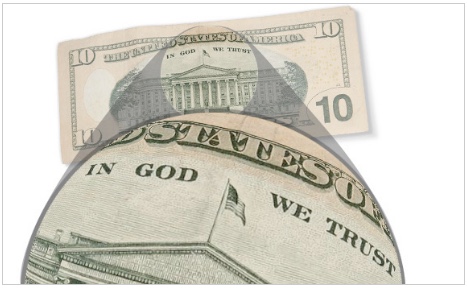
(Photo illustration by Matilda Luk, Office of Communications)
The next book that was reviewed is One Nation Under God: How Corporate America Invented Christian America by Kevin Kruse.
Kevin Kruse is a professor of history at Princeton, and was selected as one of the top young historians in the country by HNN in 2006.
The book: Kruse's book investigates how the idea of America as a Christian nation was promoted in the 1930s and '40s when industrialists and business lobbies, chafing against the government regulations of the New Deal, recruited and funded conservative clergy to preach faith, freedom and free enterprise.
In an interview with NPR, Kruse described the origins of the phrase "In God we trust":
So the phrase "In God we trust" comes from an often forgotten stanza of The Star-Spangled Banner. It goes: "Then conquer we must when our cause it is just, and this be our motto — 'In God is our trust.' "That stanza was largely forgotten until the Civil War when the phrase "In God we trust" is plucked out of that line and placed on coins. And it is done so at the urging of religious leaders who believe the Civil War has come as a result of America's original sin, of not officially being founded as a Christian nation.
In an interview with Princeton's Office of Communications, Kruse talked about how he approaches his projects, and how he would advise his students to apply those ideas to their own work:
Above all else, I follow the evidence. I think there's no other honest way to do history than to be true to your sources. Obviously historians come at them with certain questions and assumptions but we have got to leave ourselves open to be told we're wrong and to follow those sources and try to see what they're telling us.
That's exactly how I encourage students to do history. Start off asking questions that are informed by the literature, informed by your own hunches about what might be out there and what might be interesting. But you've really got to get into the archives. You've really got to dig into the primary material. Hopefully you're asking new questions that lead to new answers. Often you'll come up dry, but even in that case, at least you know what's not there. You keep digging until you find one where you strike oil. Once you do, that will lead on to new places for you to explore. But you've got to follow the sources.
The reviewer: Michael Kazin is editor of Dissent and teaches history at Georgetown University. He appeared on HNN back in 2010.
He said:
Despite the argument Kruse makes beginning with his subtitle, “corporate America” played no significant role in conceiving any of these initiatives
Kruse tells a big and important story about the mingling of religiosity and politics since the 1930s. Still, he oversells his basic premise.
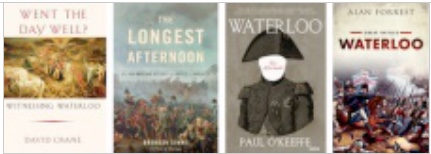
The next four books reviewed were timely releases on The Battle of Waterloo, which took place in Belgium, marking the final defeat of French military leader and emperor Napoleon Bonaparte, who conquered much of continental Europe in the early 19th century. This year marks the 200th anniversary of the infamous battle.
The reviewer: Mike Rapport teaches European history at the University of Glasgow. His primary areas of research interest include the French Revolution, the French Revolutionary and Napoleonic Wars, the ‘domino’ revolutions, meaning such revolutionary waves as those of 1848 in Europe.
Went the Day Well? Witnessing Waterloo by David Crane
Crane read history and English at Oxford University before becoming a lecturer at universities in Holland, Japan, and Africa. This book is the story of the battle that ended the Napoleonic Wars, as well as a narrative that switches perspectives between the battlefield and the British home front over 24 hours on June 18, 1815.
"Of the many books that have been written to mark this year’s bicentenary of the battle of Waterloo, Crane’s surely ranks among the most original."
"Crane holds up the battle as a lens through which we see a warts-and-all portrait of Britain 200 years ago."
Note: I'm a bit hesitant about the wart-filled portrait. All the same, I will take it in stride with a Mona Lisa smile.
The Longest Afternoon: The 400 Men Who Decided the Battle of Waterloo by Brendan Simms
Simms is a professor in the History of International Relations and fellow at Peterhouse College, Cambridge. Simms recounts how the Second Light Battalion, King’s German Legion, made up of about 400 riflemen, beat back wave after wave of French infantry until finally forced to withdraw, but only after holding up Napoleon for so long that he lost the overall contest. They were tasked with defending the Haye Sainte farmhouse, a crucial crossroads on the way to Brussels.
"Simms’s engaging, readable narrative is one of bravery, terror and suffering..."
"By focusing on the action around La Haye Sainte, Simms offers a reminder that Waterloo was not fought just between the British and French, but was very much a European battle."
The Aftermath by Paul O’Keeffe
O'Keeffe is a writer, lecturer and biographer. His book offers an account of the aftermath of the battle of Waterloo, focusing on "the sights, sounds, and smells of the battlefield, of conquest and defeat, of celebration and riot."
"O’Keeffe describes these fraught, uncertain days with skill and a touch for ground-level detail."
"O’Keeffe has told in vivid colors a story that is often passed over in most narratives, but that is alive with drama and human tragedy."
Waterloo by Alan Forrest
Forrest is Emeritus Professor of Modern History at the University of York.
"As Forrest shows, Waterloo meant different things to different people. His elegantly written book has the necessary chapter on the campaign and explores the diplomatic context, but his primary focus is on how the battle was received at the time and remembered since."
"He unravels the controversies over the legacy of Waterloo not only with a keen sense of nuance, but also with flair."
For Fun: When the Prussians captured Napoleon’s campaign carriage on June 19, they found printed proclamations announcing his victory, addressed to the people of Belgium and post-dated June 17 1815. He also promised his troops unlimited plunder when they occupied the Belgian capital. Confident much?
If you live in Iowa, you can actually visit Waterloo! Tune in next week!